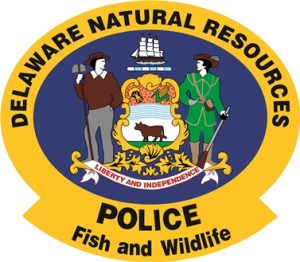PIKE CREEK – DNREC’s Division of Fish & Wildlife has confirmed reports of a bear sighting from residents in the Pike Creek area of northern New Castle County.
“Black bear populations within our neighboring states of Maryland, New Jersey and Pennsylvania have expanded over the past several decades. As a result, we are not surprised to have a bear find its way into Delaware,” said Joe Rogerson, program manager for Species Conservation and Research, Division of Fish & Wildlife. “It wasn’t a question of if, but when it would happen.”
Earlier today, the Division of Fish & Wildlife received several reports of a possible black bear sighting in northern New Castle within the area of Pike Creek. A DNREC biologist responded to two of the areas the bear was observed and was able to confirm the sightings via evidence of feeding and tracks left by the bear.
For residents in the area where the bear has been seen, the Division of Fish & Wildlife advises taking the following precautions:
- If you see the bear:
- Do not approach it, attempt to touch it, feed it or shoot at it. Back away slowly – give it space. Go inside and wait for the bear to leave. Once inside, please contact the Division of Fish & Wildlife to report the sighting at 800-523-3336.
- Keep in mind, most bears fear people and will retreat when they see you.
- Eliminate potential food sources that could attract the bear by cleaning or removing anything outdoors that may smell like food. This includes:
- Locking garbage in a secure trash container, or keeping it inside until the day of pick-up;
- Rinsing trash containers with ammonia to eliminate food odors;
- Temporarily discontinuing the use of backyard compost piles;
- Storing cooking grills inside or keeping them clean of food residue; and
- Temporarily removing birdfeeders ─ there are many wild food sources for birds during this time of year.
- If you have animals:
- Keep food indoors. If animals are fed outdoors, only feed the animal what it will eat in one sitting to ensure that there is no food remaining.
- Corral animals close to buildings and outdoor lighting at night.
- If you have electric fencing, make sure it’s turned on to protect chicken coops, livestock nursery pens, etc.
- Promptly dispose of dead farm animals.
“This time of year, male bears are known to roam widely, but if given the opportunity, we will attempt to live-capture the bear and transport it to more suitable habitat out of state within the bear’s normal range,” said Wildlife Administrator Rob Hossler, Division of Fish & Wildlife. “Sightings from the general public will help us track its movements and enable us to respond accordingly. We ask anyone who sees the bear to report the encounter, including the specific location, by calling 800-523-3336.”
Media Contact: Joanna Wilson, DNREC Public Affairs, 302-739-9902
Vol. 46, No. 176
